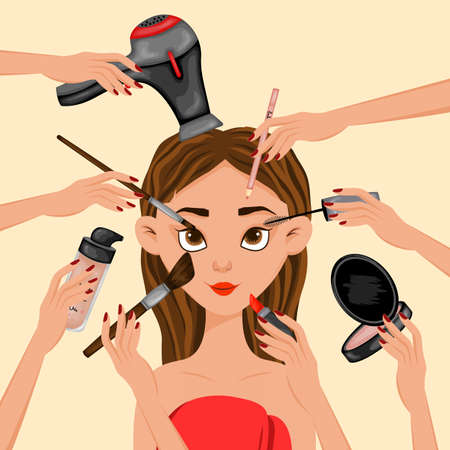Introduction to Celebrity Culture in the UK
The United Kingdom has long been a fertile ground for celebrity culture, with its unique blend of royalty, music icons, television personalities, and film stars. From the globally recognised Royal Family to homegrown talents like footballers and reality TV stars, celebrities occupy a central position in British society. Their influence extends far beyond the red carpet, shaping public opinion, consumer behaviour, and even national identity. The British media landscape—anchored by influential platforms such as the BBC, ITV, tabloid newspapers like The Sun and Daily Mail, and digital outlets including Instagram and TikTok—plays a pivotal role in elevating celebrities to household names. These platforms not only broadcast their achievements but also provide intimate access to their personal lives, fashion choices, and aesthetic transformations. In this environment, celebrities are often seen as both aspirational figures and relatable personalities, blurring the lines between everyday life and stardom. This cultural framework sets the stage for understanding how trends—particularly those related to beauty and cosmetic enhancement—are rapidly adopted and normalised across the UK.
Media Representation and Social Influence
In the UK, media channels play a pivotal role in shaping public perceptions of beauty and driving cosmetic surgery trends. The convergence of mainstream outlets—such as reality TV shows and tabloids—with digital platforms, including social media influencers, creates a powerful ecosystem that consistently broadcasts evolving ideals. Programmes like “Love Island” and “The Only Way Is Essex” have become cultural landmarks, often sparking surges in demand for specific cosmetic procedures. Tabloids frequently spotlight celebrities’ transformations, providing before-and-after comparisons that both normalise and glamorise surgical enhancement.
The Influence of Media Formats
| Media Format | Example | Impact on Public Perception |
|---|---|---|
| Reality TV | Love Island, TOWIE | Promotes aspirational looks; increases awareness of non-surgical enhancements (fillers, Botox) |
| Tabloids | The Sun, Daily Mail | Sensationalises celebrity transformations; fosters curiosity and acceptance of surgery |
| Influencers | Instagram, TikTok personalities | Normalises procedures via personal testimonials; drives trends with viral content |
Shaping Beauty Standards Through Digital Lenses
The rise of social media has democratised influence, allowing micro-influencers and everyday users to contribute to prevailing beauty standards. Hashtags such as #lipfillers and #bodygoals trend frequently among UK audiences, reinforcing an ongoing dialogue about appearance. Influencers offer behind-the-scenes insights into their cosmetic journeys, reducing stigma while simultaneously raising expectations. This constant exposure blurs the line between attainable aesthetics and digitally enhanced perfection.
Cultural Implications in the British Context
British medias tone—often self-deprecating yet aspirational—adds a unique layer to the conversation around cosmetic surgery. While tabloids might use cheeky headlines or highlight celebrity mishaps, they nonetheless contribute to widespread acceptance of procedures. As a result, cosmetic enhancements are no longer solely associated with Hollywood glamour but have woven themselves into the fabric of British popular culture, influencing everyday choices across diverse demographics.

3. Popular Cosmetic Procedures Influenced by Celebrities
The UK’s cosmetic surgery landscape is deeply intertwined with the ebb and flow of celebrity culture, where public figures often set the benchmark for beauty ideals. Over recent years, the most sought-after procedures have often mirrored transformations seen on famous faces, propelling certain treatments into the mainstream. For example, the “Kate Middleton nose” became a buzzword in clinics across Britain after the Duchess of Cambridge’s refined profile caught widespread attention. Similarly, the popularity of non-surgical lip enhancements surged as celebrities like Kylie Jenner showcased fuller lips on social media, despite her American roots, her influence resonates powerfully within British youth culture.
Breast augmentation remains consistently popular, but trends fluctuate according to celebrity inspiration; the shift towards a more natural silhouette has been attributed to British icons such as Emma Watson and Rosie Huntington-Whiteley, whose understated elegance redefines modern femininity. Meanwhile, male cosmetic surgery is also on the rise, with jawline contouring procedures gaining traction thanks to actors like Henry Cavill and footballers such as David Beckham setting rugged-yet-groomed standards.
Minimally invasive treatments are especially prevalent among younger demographics influenced by reality TV personalities from shows like “Love Island.” The so-called “tweakments”—including Botox, dermal fillers, and non-surgical rhinoplasty—are widely requested by patients seeking subtle enhancements that echo their favourite influencers while avoiding drastic changes. This demand is further amplified by influencers’ transparency about their cosmetic journeys on platforms like Instagram and TikTok, making once-taboo treatments part of everyday conversation.
The ripple effect of these high-profile transformations demonstrates how celebrity culture doesn’t just reflect societal preferences—it actively shapes them. By spotlighting particular features or procedures, celebrities in the UK catalyse new waves of demand that redefine what is considered beautiful or aspirational in British society.
4. Societal Attitudes and Ethical Considerations
In the UK, public sentiment towards cosmetic surgery has undergone significant transformation in recent years, much of which can be traced to the profound influence of celebrity culture. Traditionally, cosmetic procedures were associated with stigma and secrecy; however, the increasing openness of high-profile personalities about their enhancements has contributed to a gradual shift in societal attitudes. Celebrities who publicly discuss their experiences often help normalise these procedures, reducing shame and encouraging broader acceptance across diverse demographics.
Stigma Versus Acceptance
The interplay between stigma and acceptance is nuanced. While some segments of society continue to view cosmetic surgery as superficial or unnecessary, others—particularly younger generations—are more accepting, viewing such procedures as legitimate forms of self-expression and self-care. This dichotomy is closely linked to media portrayals and the candidness of celebrities regarding their own choices.
| Societal Attitude | Influence of Celebrity Culture |
|---|---|
| Scepticism & Stigma | Older generations, traditionalists; reinforced by negative press coverage of botched surgeries |
| Neutrality & Curiosity | Middle-aged adults; influenced by both positive and negative celebrity narratives |
| Acceptance & Aspiration | Younger generations; inspired by celebrities showcasing results on social media platforms |
The Role of High-Profile Personalities
Celebrities serve not only as trendsetters but also as ethical touchpoints in the public discourse around cosmetic surgery. When influential figures advocate for transparency, body positivity, or responsible decision-making, they indirectly set new standards for what is considered acceptable or aspirational within society. Conversely, when celebrities are criticised for excessive or unrealistic alterations, it can spark debates about authenticity and mental health implications.
Evolving Ethical Considerations
The ethical landscape surrounding cosmetic surgery is evolving alongside changing societal attitudes. Issues such as informed consent, accessibility, and the psychological impact of aesthetic procedures are increasingly discussed in both media and medical circles. Celebrity endorsements can blur the lines between authentic personal choice and commercial promotion, raising questions about accountability and the potential for undue influence—particularly among impressionable youth.
In summary, the intersection between celebrity culture and societal attitudes towards cosmetic surgery in the UK is dynamic and complex. As public figures continue to shape perceptions through their openness or endorsements, ethical considerations will remain central to ongoing conversations about body image, autonomy, and social responsibility.
Regulatory Environment and Industry Response
The growing influence of celebrity culture on cosmetic surgery trends in the UK has not gone unnoticed by regulatory bodies and industry practitioners. The surge in demand for aesthetic procedures, fuelled by high-profile endorsements and social media exposure, has prompted a concerted effort to safeguard public health and maintain ethical standards within the sector.
Enhanced Guidelines from Health Authorities
The General Medical Council (GMC) and the Care Quality Commission (CQC) have both strengthened their oversight in recent years. New guidelines emphasise transparency, informed consent, and patient safety—core principles intended to counterbalance the sometimes unrealistic expectations set by celebrity transformations. Practitioners are now required to provide clear information about risks, expected outcomes, and alternative treatments, ensuring that patients make decisions based on facts rather than fleeting trends.
Crackdown on Irresponsible Advertising
Responding to concerns over misleading marketing, the Advertising Standards Authority (ASA) has intensified scrutiny of promotional content across all media platforms. Particular attention is paid to advertisements targeting young people or leveraging celebrity images without adequate disclaimers. This regulatory vigilance aims to prevent vulnerable individuals from being unduly influenced by aspirational but potentially unattainable results.
Industry-Led Initiatives for Best Practice
Leading professional bodies such as the British Association of Aesthetic Plastic Surgeons (BAAPS) have introduced voluntary codes of conduct and accreditation schemes. These initiatives promote ongoing training, peer review, and the adoption of evidence-based techniques. By fostering a culture of responsibility and professionalism, UK practitioners seek to distance legitimate cosmetic surgery from the less regulated corners of the industry often glorified in celebrity circles.
Ultimately, the collaborative response between regulators and industry experts reflects a uniquely British commitment to balancing individual choice with societal wellbeing. As celebrity culture continues to evolve, so too will the frameworks guiding safe, ethical cosmetic practice in the UK.
6. Future Trends and Cultural Shifts
As the relationship between celebrity culture and cosmetic surgery in the UK continues to evolve, several emerging trends are set to redefine both the industry and public attitudes. Social media platforms, particularly Instagram and TikTok, are amplifying the influence of British celebrities and influencers, making cosmetic enhancements more visible and attainable to everyday people. This digital exposure is leading to a rise in ‘micro-procedures’—subtle treatments such as lip fillers, non-surgical rhinoplasty, and skin boosters—which promise natural results with minimal downtime.
In addition, there is growing awareness around the psychological impact of celebrity-driven beauty standards. The UK’s regulatory bodies are responding with stricter advertising guidelines and mandatory mental health assessments for those seeking certain procedures. As a result, clinics are placing greater emphasis on patient education and realistic expectations, aligning their services with ethical practices that counteract potentially harmful trends.
Looking ahead, we can expect technological innovation to further shape the landscape. Advances in AI-driven consultations and 3D visualisation will allow clients to preview potential outcomes, fostering more personalised and informed decisions. The trend towards individuality is also gaining traction; rather than emulating one-size-fits-all celebrity looks, Brits are increasingly seeking procedures that enhance their unique features while still drawing inspiration from well-known personalities.
Culturally, the conversation around cosmetic surgery is becoming more open and less stigmatised across the UK. Discussions about self-image, authenticity, and body positivity are entering mainstream discourse, challenging outdated notions of beauty. This shift is likely to encourage a more diverse representation of aesthetic ideals—both in media and within cosmetic practice itself.
Ultimately, as celebrity culture adapts alongside societal values, its impact on cosmetic surgery trends will remain significant but increasingly nuanced. The future points towards a balanced approach where aspiration meets authenticity, driven by informed choices rather than fleeting fads.


